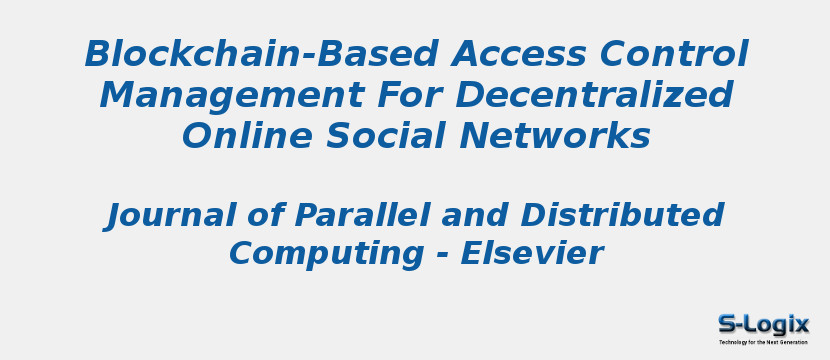Research Area: Blockchain Technology
Online Social Networks (OSNs) represent today a big communication channel where users spend a lot of time to share personal data. Unfortunately, the big popularity of OSNs can be compared with their big privacy issues. Indeed, several recent scandals have demonstrated their vulnerability. Decentralized Online Social Networks (DOSNs) have been proposed as an alternative solution to the current centralized OSNs. DOSNs do not have a service provider that acts as central authority and users have more control over their information. Several DOSNs have been proposed during the last years. However, the decentralization of the social services requires efficient distributed solutions for protecting the privacy of users. During the last years the blockchain technology has been applied to Social Networks in order to overcome the privacy issues and to offer a real solution to the privacy issues in a decentralized system. However, in these platforms the blockchain is usually used as a storage, and content is public. In this paper, we propose a manageable and auditable access control framework for DOSNs using blockchain technology for the definition of privacy policies. The resource owner uses the public key of the subject to define auditable access control policies using Access Control List (ACL), while the private key associated with the subject’s Ethereum account is used to decrypt the private data once access permission is validated on the blockchain. We provide an evaluation of our approach by exploiting the Rinkeby Ethereum testnet to deploy the smart contracts. Experimental results clearly show that our proposed ACL-based access control outperforms the Attribute-based access control (ABAC) in terms of gas cost. Indeed, a simple ABAC evaluation function requires 280,000 gas, instead our scheme requires 61,648 gas to evaluate ACL rules.
Keywords:
Author(s) Name: Mohsin Ur Rahman, Barbara Guidi, Fabrizio Baiardi
Journal name: Journal of Parallel and Distributed Computing
Conferrence name:
Publisher name: Elsevier
DOI: 10.1016/j.jpdc.2020.05.011
Volume Information: Volume 144, October 2020, Pages 41-54
